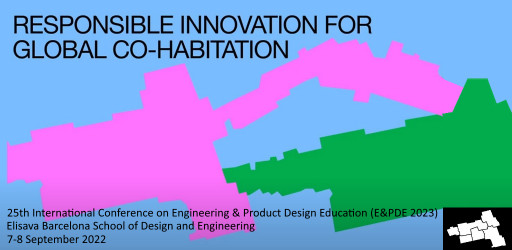Type:
Year:
2023
Editor:
Buck, Lyndon; Grierson, Hilary; Bohemia, Erik
Author:
Series:
E&PDE
Institution:
Instituto Tecnológico y de Estudios Superiores de Monterrey, Mexico
Section:
The effect that design and engineering have on global co-habitation
DOI number:
ISBN:
978-1-912254-19-4
Front matter:
Abstract:
Although handicrafts are recognized nationally and internationally as part of the identity and popular culture of Mexico, artisan producers, due to their condition of economic, educational, and geographical penury, are in unfavorable conditions to participate and unable to sell their products in attractive markets or negotiate important contracts, since they are normally carried out in spheres inaccessible to them. According to the Diagnosis of the capacity of artisans in poverty to generate sustainable income, Victoria Novelo points out that most of rural artisans are indigenous and live in conditions of poverty [1]. Many artisans are forced to sell their crafts at very low prices in the streets of the country's tourist cities, suffering discrimination from potential customers who have the economic capacity to buy their products, giving little value to their work because usually handicrafts design does not satisfy their functional or aesthetic needs, haggling over the price. Tecnologico de Monterrey is the private educational institution ranked number 1 in Mexico [2]. Therefore, we can be agents of change and promote healthy and productive relationships, through practical design workshops, taught by artisans to our students. This article describes a proposal to motivate inclusion and cultural co-habitation, with a teaching-learning model developed in the Design and Crafts course, which is part of the concentration in Art, Object and Fashion of the 2017 program of the bachelor’s degree in industrial design at the Tecnologico de Monterrey that was taught for the first time at Campus Querétaro in the semester of August December 2022. The course promotes that artisans teach the basics of artisan techniques to future designers, to letting them know the origin and tradition that artisan work represents and appreciating the cultural heritage and manual dexterity that it represents, generating a relationship of respect and empathy, which could trigger healthy and fair future working relationships for artisans and future designers. [1] Diagnóstico de la capacidad de los artesanos en pobreza para generar ingresos sostenibles. Available: https://www.gob.mx/cms/uploads/attachment/file/32043/Diagnostico_FONART_3_.pdf [Accessed on 2022, November 10] (Year Created 2009). [2] QS World University Rankings 2023: Top Global Universities. Available: https://www.topuniversities.com/university-rankings/world-university-rankings/2023 [Accessed on 2022, November 10] (Year Created 2022).
Keywords:





